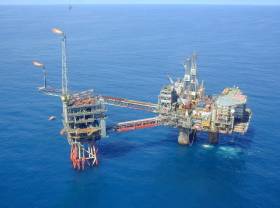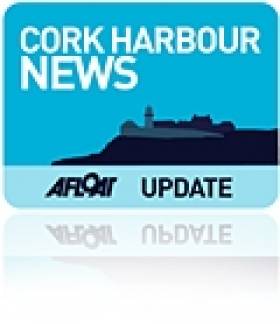Displaying items by tag: Irish Government
#MarineEnvironment - A ban on any new explorations for oil, coal, and gas on Irish territory is through a Bill about to appear before the Dail early next month.
The Climate Emergency Measures Bill writes GreenNews.ie, seeks to stop the Government from issuing any new licenses for the exploration and extraction of fossil fuels.
The bill was introduced by People before Profit (PBP) Deputy Brid Smith last November, where it successfully passed the first stage. The second stage debate on the Bill is set to begin in the Dail on 7 February.
Global mean carbon dioxide concentrations have already surpassed 400 parts per million (ppm), a level that last occurred 3 million years ago. The scientific community has stated that CO2 concentrations of 350 ppm is the highest that can safely be permitted.
Brid Smith said: “We hope to get the bill passed and ban further exploration and extraction for fossil fuels in the country. But more than that we hope that by introducing the concept of a Climate Emergency we will have started a real campaign to take serious action on climate.”
“[The bill] is just the first step in the kind of mitigation actions we need and we will follow this measure with campaigns around real support for public transport, renewable and community lead projects which would dramatically reduce Ireland’s emissions,” she added.
To read more click here noting a public talk (tomorrow, Tuesday 30 January) on Climate Change by author of Oil, Gas and the Irish State, Amanda Slevin will be held at Wynn’s Hotel in Dublin.
'Three Months to Clean Up Haulbowline' Says Europe
The Government has three months to start cleaning the toxic waste site in Haulbowline or risk court action by the European Commission, the Irish Examiner reports.
The site at the former Irish Steel plant contains an estimated 500,000 tonnes of waste, including toxic heavy metals and cancer causing materials, and has been blamed for the area's notoriety in having one of the highest cancer rates in Ireland.
Two petitions from local groups totalling 5,500 signatures were presented to the European Parliament's petitions committee in Brussels on Wednesday, according to The Irish Times.
Mary O'Leary, chair of the Cork Harbour Alliance for a Safe Environment (Chase), outlined to the committe that in spite of four reports between 1998 and 2005 highlighting the dangers of contamination from the site, the Irish State has failed to regulate it or take clean-up action.
Petitions committee member Jean-Francoise Brakland said he "fully agreed" with locals' concerns over the "dangerous mess".
He also commended Environment Minister Phil Hogan for understanding "the difficulties and the challenges of environmental implementation" but cautioned that "we are not going to wait for the next 10 years".
Brakland promised that if no real action was taken on Haulbowline after three months, the commitee would seek a court judgement againt the State.
The Irish Examiner has more on the story HERE.

























































